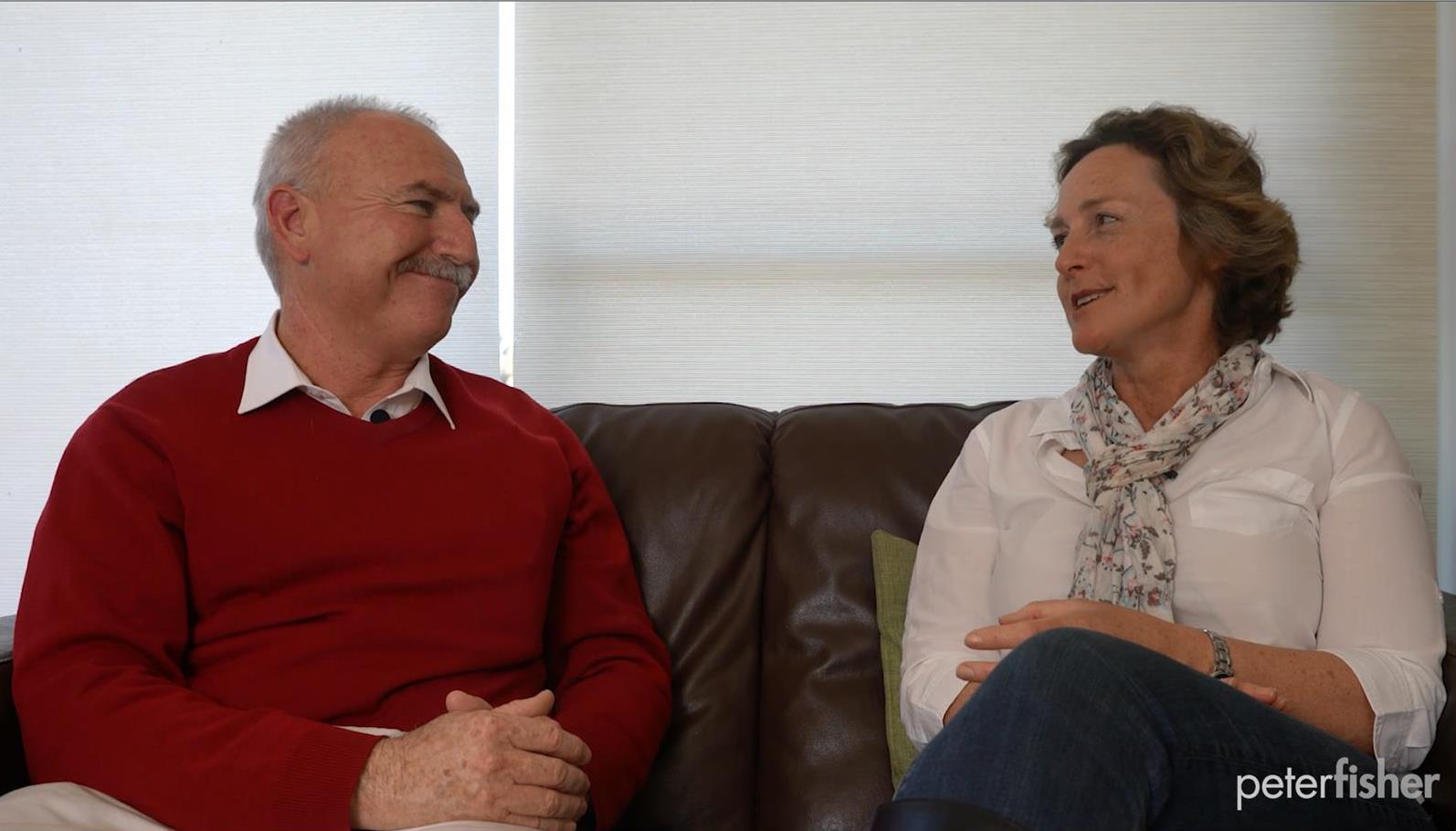Let's Talk Finance
Finance is a big part of a lot of sales that we work on and we are often asked questions by buyers about how it all works. Savings, deposits, types of loans, credit checks … there is a lot to consider.
Recently, Michael sat down with Sally Kay of Vision Property and Finance to find out her thoughts, as an experienced mortgage broker, on some of these important issues to consider when seeking finance to buy a home.
Michael Wright:
Hi, I’m Michael from Peter Fisher Real Estate. Today I’m with Sally Kay from Vision Finance. Sally, can I ask you what should be your first step finance wise when you’re thinking about purchasing your home?
Sally Kay:
Well, the first thing I’d recommend, Michael, is to give a mortgage broker a ring and they would be able to assess your situation to make sure that you have the servicing capacity to be able to borrow the money, that you have the correct deposit, and that your finances and your general financial character is in good shape. It might be that you’re ready straight away, in which case it’s then a matter of assessing what the best loan product and loan and bank is for your purposes. Or it may be that you’re not quite ready to go. You might need a bit more savings. You might need to serve out a probation period if that’s relevant, and we would be able to help you to make sure that you’re able to get in the best position to be able to buy your first home.
Michael Wright:
Okay. And I guess that’s also making sure that you’re in a position that you’re comfortable with, obviously what you can borrow and what you feel comfortable paying back can be two different things.
Sally Kay:
Definitely. And that’s something that I always talk to people about. It might be that they’re about to have a baby, in which case they would need to understand that they will be living on one income or at least part of one income for a certain amount of time. So, it is a matter of making sure that they’ve done a budget to make sure that they know how much they can comfortably afford.
Michael Wright:
Yeah. Sally, how much deposit do people generally need?
Sally Kay:
Well, ideally 20% is great, but obviously for most first homeowners that’s not possible. So, you generally it would be somewhere between five and 10% as a minimum deposit. So, at the moment, if you’re a first time buyer buying an established house, you don’t need to pay stamp duty. So really all your savings are going to be put into the deposit.
Michael Wright:
Okay. We’ve heard about changes to the banks and the way they process their loans. What do these changes mean for those trying to get finance at the moment?
Sally Kay:
Well, that’s an interesting question. I have heard a lot in the media about how there’s a lot of change about the way that banks are assessing loans, but my personal experience in the last six months since the royal commission started is there hasn’t actually been a change. The only main difference which has been happening for a couple of years is that people need to do a proper budget in terms of their living expenses and provide that to the mortgage broker or the bank. And then that is provided as part of the assessing the serviceability of the loan.
Sally Kay:
So, I’ve not seen any real changes. I mean people always have to make sure that they make all their personal loan and credit card repayments on time and they pay their rent on time. So, all that has always been the case. So, it might be that it’s a little bit harder to afford some loans, for some people, but generally I find that as long as they’ve got their finances in order, they’ve got some savings and they pay things on time, then it’s no more difficult to get a loan than it was a year or two ago.
Michael Wright:
All right, well, that’s great.
Sally Kay:
It is good. Yes, because I think it’d be really, really difficult for people, particularly in a market like Orange, where rent is pretty high, and they can actually really not pay that much more when they buy a house than what they were currently paying rent wise. So, it would be a pretty bad state of affairs if people weren’t able to get into that first home.
Michael Wright:
Very true. Now you’ve certainly got to do your figures. Lastly, a black spot on someone’s credit record. What should they do if they have a black spot that they want to get rid of?
Sally Kay:
Yeah. First thing I would do if I’m advising them is get a credit report done so we can see exactly what the default is. Sometimes people think they might have a default, but they don’t actually have one, so it’s always best to know. Second is they should make sure it’s paid pretty well straightaway if it hasn’t already been paid. And then when we provide the application to the bank, we would always give an explanation as to why that that default occurred. And many people have a default that’s there through sometimes no fault of their own. It might be that they are in a flatmate situation. The flat night didn’t pay the Telstra bill, they’ve changed credit cards. There may be a whole lot of reasons. They’ve been through a divorce. So, it’s really a matter of providing an explanation.
Sally Kay:
Sometimes it might be too big. If it’s a $200 or $300 Telstra bill, if it’s something that’s under $1000, it’s usually something that can be explained away. If it’s a $18,000 judgment because they haven’t paid a car loan, well that’s a different matter. They would have to wait until that came off their credit record. So, the government has changed the way that credit reporting has happened recently. So, its very important people make sure they pay their bills on time, make sure they make all their loan payments so that their credit score is healthy. So, I suppose back to the beginning of the part of the question is, if you have a 20% deposit or if you have parents who are willing to provide a guarantee and you have a small credit default that is paid, generally that would not be an impediment to borrowing. Sort of depends on the nature of it.
Michael Wright:
Fantastic. Well, look, some fantastic advice there, Sally Kay. Thanks very much for your time today.
Sally Kay:
Thanks, Michael.
We would like to thank Sally for taking the time to talk with us and sharing her knowledge and expertise on these matters. We hope that it has been helpful to you.



